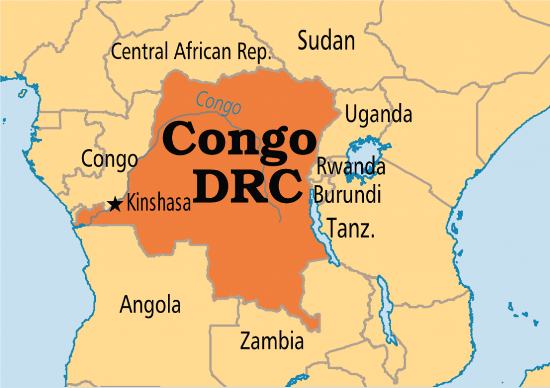
Kigali: Half of the nearly 1,000 fugitives indicted by Rwanda over the 1994 Genocide against the Tutsi live in the Democratic Republic of Congo and Uganda, according to Prosecutor General Jean Bosco Mutangana.
Addressing a news conference in Kigali, Mutangana said DR Congo hosts most of these fugitives with some 356 suspects believed to be on its soil while Uganda hosts 250 fugitives.
He called for swift investigations and extradition of the suspects saying that setting up units that push for cooperation in criminal matters would go a long way in helping fix some of these issues.
“We always raise that issue with other Prosecutor Generals and heads of Criminal Investigation Departments. We would like to appeal to these two countries to expedite the process to arrest and extradite these fugitives because they all have functional police, investigators, international diplomacy, and are signatories to international treaties,” he said.
Meanwhile, Mutangana said that indictments have been sent to 33 countries in total but the response varies from country to country.
“Sometimes the response is very slow, sometimes it is fast. Sometimes these governments decide to try the cases themselves. Currently, those who have been tried or are still on trial are 22,” he said.
Extradition and trial matters
Mutangana pointed out that cooperation in criminal matters started around 2008, when the Government set up the Genocide Fugitive Tracking Unit.
Overall, 19 suspects have been extradited so far, with the latest being Wenceslas Twagirayezu, who was extradited on Tuesday this week from Denmark.
Of these, four came from the United States, three from Uganda, three from the Netherlands, three from ICTR (in Tanzania), two from Canada, one from Norway, one from Germany and two from Denmark.
There are existing frameworks through which Uganda and DR Congo can extradite the fugitives to Rwanda, Mutangana said.
He called on the countries that are pursuing the suspects to prioritize extradition to give an opportunity to the Genocide survivors to see justice being done, adding that Rwanda was the crime scene.
“What happened during the Genocide against the Tutsi happened right here, the consequences are happening here, the evidence required is in this country, the witnesses are here and it is Rwandans who want to see the pursuit of justice firsthand. Extradition should be the priority,” he said.
Challenges
Mutangana said that there are still challenges of tracking down fugitives who are move around at any slight suspicion of detection.
“When the Genocide happened, the country did not have a data centre. We didn’t have fingerprints or any data at all on majority of the population. If you were not a student or a civil servant, no details were known about you. However, when we send a suspect’s file, we have minimum basic information that can help with investigation,” he said.
This, he said, has made it easy for many of these fugitives to get away with it for so long.
He said that most fugitives have found it easy to hop between countries, many have changed names and identity, some multiple times for the past 25 years they have been on the run. (End)
